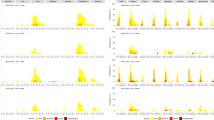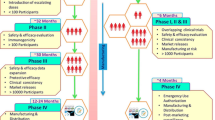Abstract
COVID-19 is caused by SARS-CoV-2 infection and leads from asymptomatic to severe outcomes. The recurrence of the COVID-19 has been described, however, mechanisms involved remains unclear. Thus, the work aimed to investigate the role of multifunctional T cells in patients with recurrent COVID-19. We evaluated clinical characteristics, presence of anti-S1 and anti-Nucleocapsid IgG in patients’ sera, and multifunctional T cells (for IFN-γ, IL-2, and TNF-α) in patients with multiple episodes of COVID-19 and controls. Data demonstrate that patients with recurrent COVID-19 have a T cell pattern predominantly related to IFN-γ production. Also, patients with COVID-19 history and absence of anti-S1 IgG had lower levels of CD4+ IFN + IL-2 + TNF + T cells independently of number of disease episodes. Complementary, vaccination changed the patterns of T cells phenotypes and induced IgG seroconversion, despite not induce higher levels of multifunctional T cells in all patients. In conclusion, the data suggest that recurrent disease is related to early-disease T cell profile and absence of anti-S1 IgG is related to lower multifunctional CD4 T cell response, what suggests possibility of new episodes of COVID-19 in these patients.



Similar content being viewed by others
Data availability
Additional data could be obtained with corresponding author upon reasonable request.
References
Koelle K, Martin MA, Antia R et al (1979) (2022) The changing epidemiology of SARS-CoV-2. Science 375:1116–1121. https://doi.org/10.1126/science.abm4915
Ye Q, Wang B, Mao J (2020) The pathogenesis and treatment of the ‘Cytokine Storm’’ in COVID-19’. J Infect 80:607–613. https://doi.org/10.1016/j.jinf.2020.03.037
Soleimanian S, Alyasin S, Sepahi N et al (2022) An update on protective effectiveness of immune responses after recovery from COVID-19. Front Immunol 13:1–11. https://doi.org/10.3389/fimmu.2022.884879
Rha MS, Shin EC (2021) Activation or exhaustion of CD8+ T cells in patients with COVID-19. Cell Mol Immunol 18:2325–2333. https://doi.org/10.1038/s41423-021-00750-4
Bonifácio LP, Pereira APS, Araújo E, DC de A et al (2020) Are sars-cov-2 reinfection and covid-19 recurrence possible? A case report from Brazil. Rev Soc Bras Med Trop 53:1–4. https://doi.org/10.1590/0037-8682-0619-2020
Smith DM, Li JZ, Moser C et al (2022) Recurrence of symptoms following a 2-day symptom free period in patients with COVID-19. JAMA Netw Open 5:E2238867. https://doi.org/10.1001/jamanetworkopen.2022.38867
Azam M, Sulistiana R, Ratnawati M et al (2020) Recurrent SARS-CoV-2 RNA positivity after COVID-19: a systematic review and meta-analysis. Sci Rep 10:20692. https://doi.org/10.1038/s41598-020-77739-y
Adrielle dos Santos L, de Filho PG, G, Silva AMF et al (2021) Recurrent COVID-19 including evidence of reinfection and enhanced severity in thirty Brazilian healthcare workers. J Infect 82:399–406. https://doi.org/10.1016/j.jinf.2021.01.020
De Castro MV, Santos KS, Apostolico JS et al (2022) Recurrence of COVID-19 associated with reduced T-cell responses in a monozygotic twin pair. Open Biol. https://doi.org/10.1098/rsob.210240
Dos Santos CA, Bezerra GVB, De Azevedo MARRA et al (2021) SARS-CoV-2 genomic surveillance in Northeast Brazil: timing of emergence of the Brazilian variant of concern P1. J Travel Med 28:1–3. https://doi.org/10.1093/jtm/taab066
Tregoning JS, Flight KE, Higham SL et al (2021) Progress of the COVID-19 vaccine effort: viruses, vaccines and variants versus efficacy, effectiveness and escape. Nat Rev Immunol 21:626–636
Peghin M, De Martino M, Fabris M et al (2021) The fall in antibody response to SARS-CoV-2: a longitudinal study of asymptomatic to critically Ill patients up to 10 months after recovery. J Clin Microbiol. https://doi.org/10.1128/JCM.01138-21
Marshall JC, Murthy S, Diaz J et al (2020) A minimal common outcome measure set for COVID-19 clinical research. Lancet Infect Dis 20:e192–e197
Hønge BL, Petersen MS, Olesen R et al (2017) Optimizing recovery of frozen human peripheral blood mononuclear cells for flow cytometry. PLoS ONE 12:1–17. https://doi.org/10.1371/journal.pone.0187440
Bagno FF, Sérgio SAR, Figueiredo MM et al (2022) Development and validation of an enzyme-linked immunoassay kit for diagnosis and surveillance of COVID-19. J Clin Virol Plus. https://doi.org/10.1016/j.jcvp.2022.100101
Magalhães LS, Melo EV, Damascena NP et al (2022) Use of N-acetylcysteine as treatment adjuvant regulates immune response in visceral leishmaniasis: pilot clinical trial and in vitro experiments. Front Cell Infect Microbiol 12:1–10. https://doi.org/10.3389/fcimb.2022.1045668
Rodrigues LS, Barreto AS, Bomfim LGS et al (2021) Multifunctional, TNF-α and IFN-γ-secreting CD4 and CD8 T cells and CD8 high T cells are associated with the cure of human visceral leishmaniasis. Front Immunol 12:1–20. https://doi.org/10.3389/fimmu.2021.773983
Roederer M, Nozzi JL, Nason MC (2011) SPICE: exploration and analysis of post-cytometric complex multivariate datasets. Cytometry A 79A:167–174. https://doi.org/10.1002/cyto.a.21015
Kumar NP, Moideen K, Nancy A et al (2022) Enhanced SARS-CoV-2-specific CD4+ T cell activation and multifunctionality in late convalescent COVID-19 individuals. Viruses 14:1–14. https://doi.org/10.3390/v14030511
Ahmed SF, Quadeer AA, McKay MR (2022) SARS-CoV-2 T cell responses elicited by COVID-19 vaccines or infection are expected to remain robust against omicron. Viruses 14:4–9. https://doi.org/10.3390/v14010079
Yang M, Lin C, Wang Y et al (2022) Cytokine storm promoting T cell exhaustion in severe COVID-19 revealed by single cell sequencing data analysis. Precis Clin Med. https://doi.org/10.1093/pcmedi/pbac014
Jung JH, Rha MS, Sa M et al (2021) SARS-CoV-2-specific T cell memory is sustained in COVID-19 convalescent patients for 10 months with successful development of stem cell-like memory T cells. Nat Commun 12:1–12. https://doi.org/10.1038/s41467-021-24377-1
Sekine T, Perez-Potti A, Rivera-Ballesteros O et al (2020) Robust T cell immunity in convalescent individuals with asymptomatic or Mild COVID-19. Cell 183:158-168.e14. https://doi.org/10.1016/j.cell.2020.08.017
Chvatal-Medina M, Mendez-Cortina Y, Patiño PJ et al (2021) Antibody responses in COVID-19: a review. Front Immunol 12:1–14. https://doi.org/10.3389/fimmu.2021.633184
van der Ploeg K, Kirosingh AS, Mori DAM et al (2022) TNF-α+ CD4+ T cells dominate the SARS-CoV-2 specific T cell response in COVID-19 outpatients and are associated with durable antibodies. Cell Rep Med 3:100640. https://doi.org/10.1016/j.xcrm.2022.100640
Justino DCP, Silva DFO, Costa KTDS et al (2022) Prevalence of comorbidities in deceased patients with COVID-19: a systematic review. Medicine (United States) 101:E30246. https://doi.org/10.1097/MD.0000000000030246
Acknowledgements
We would like to thank Dr. Ricardo Tostes Gazzinelli and Dr. Flávia Fonseca Bagno from CTVacinas (UFMG, Brazil) for the antigen used in this work. We are grateful to all the patients and volunteers who dedicated their time to participate in this study. Also, we would like to express our thanks to the University Hospital from UFS.
Funding
This research was funded by Fundação de Amparo à Pesquisa do Estado de São Paulo [grant number 2013/08216-2]. CNOS received doctoral scholarship from Coordenação de Aperfeiçoamento de Pessoal de Nível Superior. LSM have postdoctoral fellowship from Conselho Nacional de Desenvolvimento Científico e Tecnológico (CNPq) [process 151365/2022-9]. ARJ, RPA, and JSS are scientists supported by CNPq.
Author information
Authors and Affiliations
Contributions
Conceptualization, ARJ, RPA, LSM, CNOS; methodology, CNOS, LSM; formal analysis, LSM; investigation, CNOS, LSM, FAO, RLLS, GCC; resources, JSS, RPA, ARJ; writing—original draft preparation, CNOS, LSM, ARJ; writing—review and editing, CNOS, LSM, ARJ, JSS; visualization, LSM, CNOS; supervision, ARJ, RPA; funding acquisition, ARJ, RPA, JSS. All authors have read and agreed to the published version of the manuscript.
Corresponding author
Ethics declarations
Conflict of interest
The authors declare no conflict of interest.
Ethical approval
The study was approved by the Ethics Committee from Federal University of Sergipe (reference number 4.018.577). Informed consent was obtained from all subjects involved in the study.
Additional information
Edited by Matthias J. Reddehase.
Publisher's Note
Springer Nature remains neutral with regard to jurisdictional claims in published maps and institutional affiliations.
Supplementary Information
Below is the link to the electronic supplementary material.
Rights and permissions
Springer Nature or its licensor (e.g. a society or other partner) holds exclusive rights to this article under a publishing agreement with the author(s) or other rightsholder(s); author self-archiving of the accepted manuscript version of this article is solely governed by the terms of such publishing agreement and applicable law.
About this article
Cite this article
Santos, C.N.O., Caldas, G.C., de Oliveira, F.A. et al. COVID-19 recurrence is related to disease-early profile T cells while detection of anti-S1 IgG is related to multifunctional T cells. Med Microbiol Immunol 212, 339–347 (2023). https://doi.org/10.1007/s00430-023-00776-7
Received:
Accepted:
Published:
Issue Date:
DOI: https://doi.org/10.1007/s00430-023-00776-7




